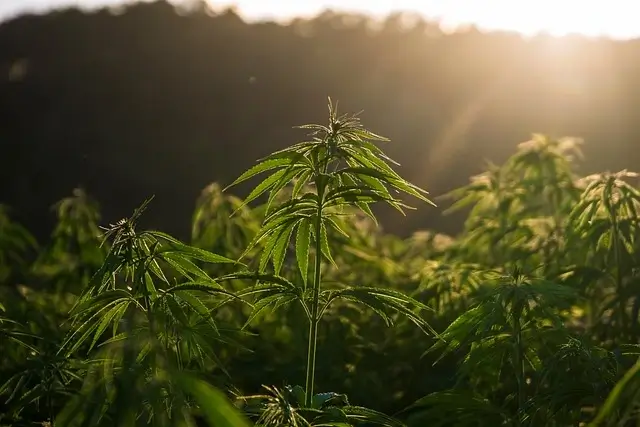Hemp cultivation in India is gaining momentum due to the plant’s immense potential and versatility. Hemp is a potent crop that is easy to grow, maintain, and harvest. It is an herbaceous plant ranging from 4 to 15 feet in height. As a high-value crop, hemp is grown for fiber, seed, and Cannabidiol (CBD). It is also an eco-friendly, organic, and natural purifier, capable of absorbing a significant amount of CO₂ from the environment, making it highly sustainable for large-scale agriculture.
Hemp is scientifically known as Cannabis Sativa also called Industrial hemp. It is grown specifically for industrial use. A wide range of commercial products such as paper, rope, and textiles. Clothing, biodegradable plastic, biofuel, and food are made out of hemp.
It has numerous medicinal benefits; its seeds are rich in various nutrients and fats such as omega 3 and omega 6 fatty acids. Adding it to the diet can help lower cholesterol and blood pressure. Additionally, the rise of Industrial Hemp cultivation in India signals a growing interest in this versatile crop for various industrial and medicinal purposes.
Areas related to Hemp Cultivation in India
The blog will cover all the essential areas related to the cultivation of Industrial hemp in India. All the areas are required to read before starting the cultivation of hemp in India.
Industrial Hemp Cultivation States in India
Uttarakhand is the first state to issue a license for hemp cultivation in India. But the notable fact here is that the license is only for growing it for industrial purposes containing less than 0.3% THC compound. Now Uttarakhand, Uttar Pradesh, Gujarat, Andhra Pradesh, Odisha, Tamil Nadu, and Himachal Pradesh have also legalized industrial hemp cultivation in some areas.
Soil requirements
The hemp plant has the capacity to grow on a wide variety of soils. It prefers to grow in a deep and well-aerated soil of ph. value 6 or more than that. The soil also should have good nutrient and moisture holding capacity. Excess surface water can destroy it thus, it is highly sensitive to flooding and soil compaction.
Temperature requirements
Temperature plays an essential role in the growth of the hemp plant at its different stages. It can tolerate warmer and colder climatic conditions to some extent. But the ideal temperature for growing should be between 16 to 27 degrees Celsius.
Determining the hemp plant spaces
Spaces to grow hemp depends on the type or purpose for which it is grown. Industrial hemp and cannabinoid hemp both need different spaces to grow. Industrial hemp needs minimal spaces to grow as it is not too distant in terms of spacing. It requires a 4 to 6 inches distance to grow. Whereas cannabinoid hemp needs larger spaces than this to grow. Because it is the flowering type of hemp thus needs more space to thrive.
Stages of industrial hemp growth
The hemp plant can grow very large and quickly in minimal time. A hemp plant takes 4 months to grow completely. It has two distinct stages of growth – Vegetative and Flowering. At the vegetative stage, it uses more nitrogen to grow wide and at the flowering stage, it switches to potassium and phosphorus.
The yield of hemp per acre
Hemp grown on one acre can yield up to 700 pounds of grain which can be pressed to produce about 22 gallons of oil and 530 pounds of meal. Also, the same can produce about 5300 pounds of straws which can be transformed into 1300 pounds of fiber.
The legal existing law for hemp cultivation
The cultivation of hemp for industrial purposes for horticultural use is legal in India. The condition is that the grown hemp should have less than 0.3 % of THC compound. CBD and THC are not recognized under Ayurveda, which is why they can’t be mentioned on the packaging of the medicines.
Anyone can import, export, or manufacture cannabis plant-based medicine under the Narcotic Undercover license. This is the only legal way to use it as a part of any business. Without this license and legalization selling, distribution, and cultivation is illegal. Thus, hemp legalization in India is only possible through the approval of DGCI under the Drugs and Cosmetics Act.
Conclusion
Industrial hemp cultivation is not widely practised in India. It is grown in some parts of India for commercial purposes. The use of cannabis, including hemp, is regulated by the Narcotic Drugs and Psychotropic Substances Act of 1985, which restricts its cultivation and usage. However, in recent years, there have been discussions about the potential benefits of industrial hemp and the need to reconsider its legal status in India.


Pingback: NAP Limited - What Hemp Products Are Legal
Pingback: Almora's Industrial Hemp Revolution: Cultivating Sustainability
Pingback: Hemp A wonder Crop: development and Historical Analysis
Pingback: Grapes Cultivation in India: A Complete Guide | Niche Agriculture
Pingback: Regenerative Agriculture - practice to fight climate crisis
Pingback: Robusta Banana Farming In India, soil types for banana
Pingback: What can industrial hemp be used for - NAP Limited
Pingback: The Green Wonder: How Hemp Benefits the Environment